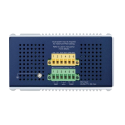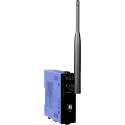E1.S SSDs: Transforming Data Center with Efficiency
The rising trend of edge AI is fueling the need for data storage and SSDs to support high-capacity tasks with high performance and low latency. Businesses are increasingly seeking SSDs with faster speed and more elevated density, catering to the demand for efficiency in high-performance edge computing. As the adoption of PCIe 5.0 becomes widespread in the future, there is an expected surge in the use of EDSFF (Enterprise and Datacenter Standard Form Factor) SSDs. Studies have shown that these SSDs could replace some of the 2.5-inch M.2 SSDs traditionally found in enterprise servers. Notably, Innodisk is at the forefront of these advancements with plans for E1.S, ensuring a forward-looking approach to the evolving landscape of data storage solutions.
SSD’s form factor will significantly influence a system device’s speed, efficiency, and storage capacity. It plays a crucial role as it determines the physical design and compatibility of SSDs with devices. Traditional form factors like M.2 and U.2 cater to specific application needs, each characterized by unique features and specifications. In addition to traditional options, the emergence of the Enterprise and Datacenter Standard Form Factor (EDSFF) further addressesthe specific needs of enterprise-level applications.
EDSFF
EDSFF represents a range of form factors crafted for the need for data center storage. The form factors include E1.S, E1.L, and E3. These SSD variations incorporate advantages in capacity, thermal and power management, scalability, manageability, and performance. They present a comprehensive solution to address diverse storage needs within the dynamic data center environment.
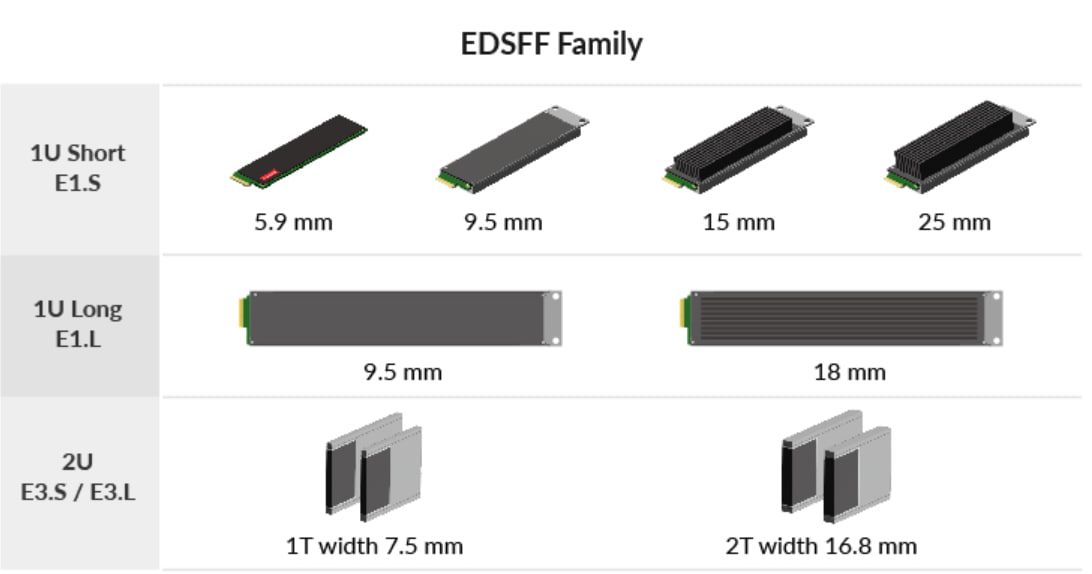
E1.S has emerged as a compelling solution for data center and server deployments. As the demand for compact yet high-performing storage solutions in edge computing continues to grow, E1.S offers a strategic response to this need. With its small form factor and focus on optimized performance and storage density, E1.S SSDs are poised to redefine how edge servers and data centers handle data-intensive tasks while maintaining efficient space utilization. In response to the rising demand, Innodisk is planning to introduce its E1.S SSD solutions, catering to the pressing needs of these environments.
The Rise of E1.S
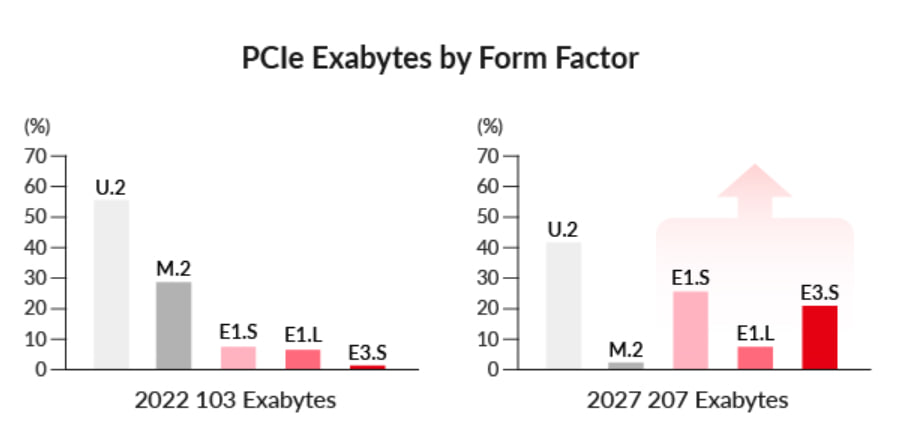
E1.S excels in thermal management, ensuring optimal performance during heavy workloads, a challenge frequently encountered by M.2 SSDs. Moreover, E1.S supports a hot-plug, which improves serviceability. E1.S’s size allows for greater SSD density in server systems, setting it apart in enterprise and data center storage solutions.
What Sets E1.S Apart Fr om the Others
|
|
M.2 | U.2 | E1.S |
| Size |
2230/2242/ 2280/22110 |
2.5-inch/ 7mm/15mm |
5.9mm/9.5mm 15mm/25mm |
| Capacity | Low | High | Mid-high |
| Performance | PCIe x4 | PCIe x4 | PCIe x4, 8 |
| Hot-plug | No | Yes | Yes |
| Thermal management | Needs a heat sink to support | The backplane blocks the airflow to pass through | Airflow can pass through the backplane completely |
E1.S: Elevating Data Center Efficiency
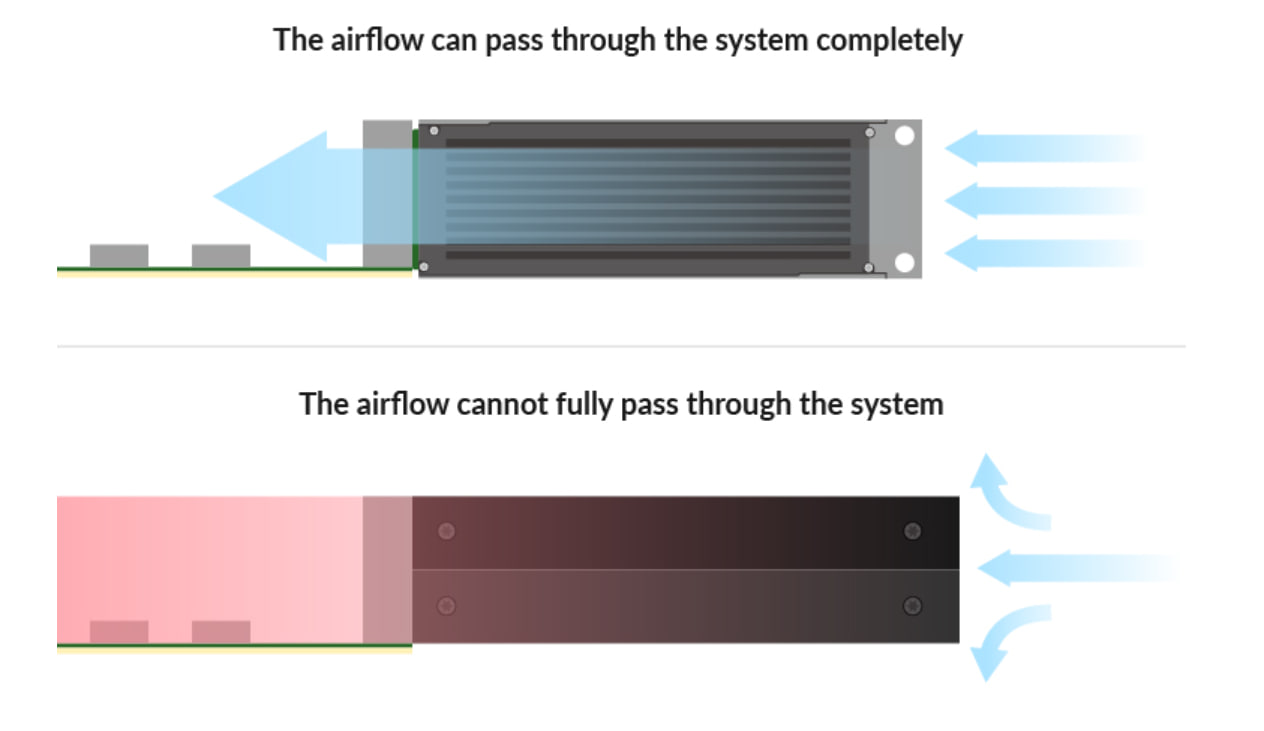
When it comes to optimizing data center performance, E1.S emerges as a frontrunner over M.2 SSDs because E1.S addresses several limitations of M.2. E1.S boosts performance, scalability, and ease of maintenance, and it is optimized for higher capacities and enterprise-level performance, making it suitable for data-intensive server workloads.
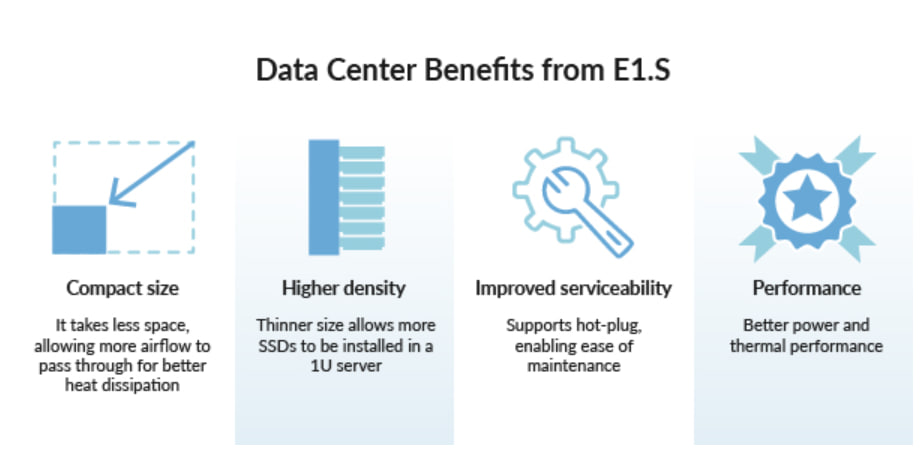
Looking Forward
E1.S is built with longevity and designed to endure across multiple generations. It is the frontrunner to replacing M.2 in data centers, boasting unparalleled support among its competitors. As the landscape of edge servers expands, driven by the growing influence of IoT (Internet of Things), Innodisk is at the forefront of innovation. Plans are underway to introduce a new iteration of E1.S in 2024, strategically tailored for edge servers.
In essence, E1.S SSDs are tailored to the specific needs of data centers and enterprise environments, and this positions them as a smart choice for future applications wh ere performance, scalability, and serviceability are critical. Beyond conventional offerings, Innodisk’s industrial-grade solution addresses a vital need—the absence of wide temperature support in traditional data center SSDs designed for indoor, air-conditioned environments.
For edge applications where servers confront harsh environmental conditions, Innodisk leverages the enhanced mechanical and thermal design of EDSFF to ensure optimal performance. Notably, the firmware is meticulously optimized to meet the endurance requirements for demanding data center workloads. This comprehensive approach solidifies E1.S SSDs as an intelligent and forward-looking solution for the evolving needs of data storage across diverse environments.
| Innodisk E1.S SSD | |
| Model | E1.S 4TS2-P |
| Form Factor | E1.S 9.5mm/ E1.S 15mm |
| Interface | PCle 4.0 x4 |
| Protocol | NVMe 1.4 |
| Capacity | 400GB-3.2TB |
| Temperature | Standard Temp. (0°C -70°C) / Wide Temp. (-40°C-85°C) |
| DWPD | 1-3 |
| Warranty | 5 years |
| Features(optional) | AES /TCG Opal / Thermal Management |
